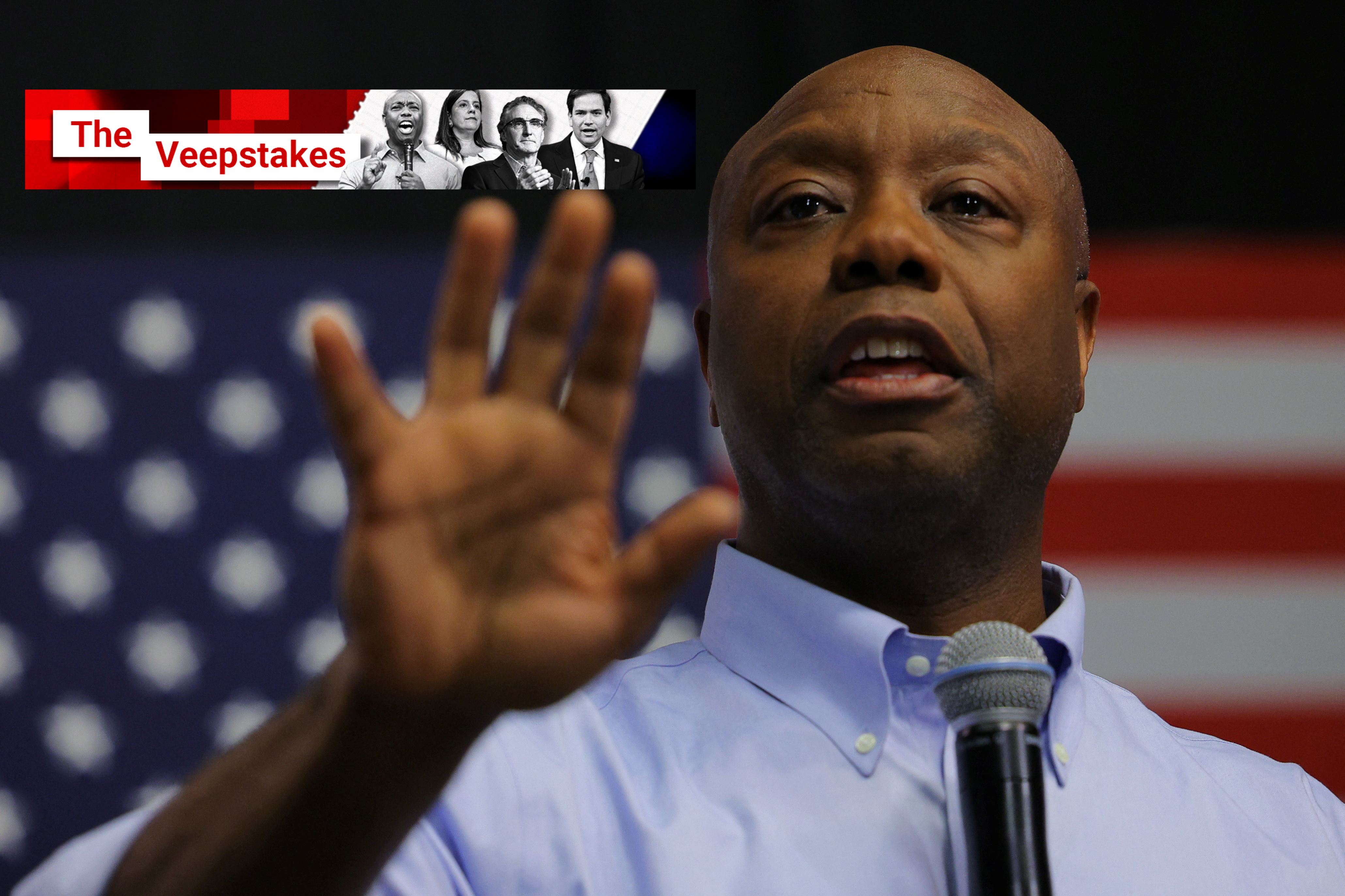South Carolina Sen. Tim Scott, who withdrew from the race for the Republican nomination last November, has been campaigning hard for Donald Trump – and he has his eye on becoming vice president. But will the GOP’s only Black senator get Trump’s VP nod?
Raised by a single mom in Charleston, South Carolina, Scott became the first Black Republican elected to any office in the Palmetto State since the 19th century when he won his 1995 Charleston city council race. In 2008, he won a seat in the statehouse and went on to the House of Representatives in 2010. After one term, then-South Carolina Gov. Nikki Haley appointed him to fill a vacant Senate seat, and he has easily won reelection three times. He is arguably the most recognizable elected Black Republican in office today.
Trump recently said Scott was a “better surrogate” than a candidate thanks to the latter’s enthusiastic efforts to whip up excitement for the former president’s campaign. If Scott detected any damnation by faint praise in the remark, he certainly didn’t let it on, saying Trump was “right” when asked about the remarks on Fox.
Eurasia Group’s Jon Lieber says Scott “has a great personal story, he’s a telegenic presence, he’s inoffensive, and he has a good reputation in the Senate that comes along with relationships and domestic policy chops.” That said, Lieber isn’t convinced Scott can help Trump consolidate support with voters who aren’t sold on the former president.
Scott recently launched a $14 million campaign to help Trump make inroads with minority voters in seven swing states, which could ease concerns like Lieber’s if successful. We’re watching how it plays out, and whether Scott’s affability helps temper Trump’s hard edge with voters.
To learn about Trump’s other possible VP picks, check out our Veepstakes series here.
More For You
Most Popular
Europe can no longer rely on the US and must step up to defend its own future, Ian Bremmer reports from the Munich Security Conference.
The Supreme Court has struck down President Trump’s use of the national emergency clause to impose sweeping tariffs around the world. In this Quick Take, Ian Bremmer explains why this ruling was predictable and why it’s a major setback for Trump’s trade strategy.
“For India, AI stands for all inclusive,” reads the billboard outside this week’s AI Impact Summit in New Delhi organized by the Indian government, the first major gathering on the subject in the Global South.
